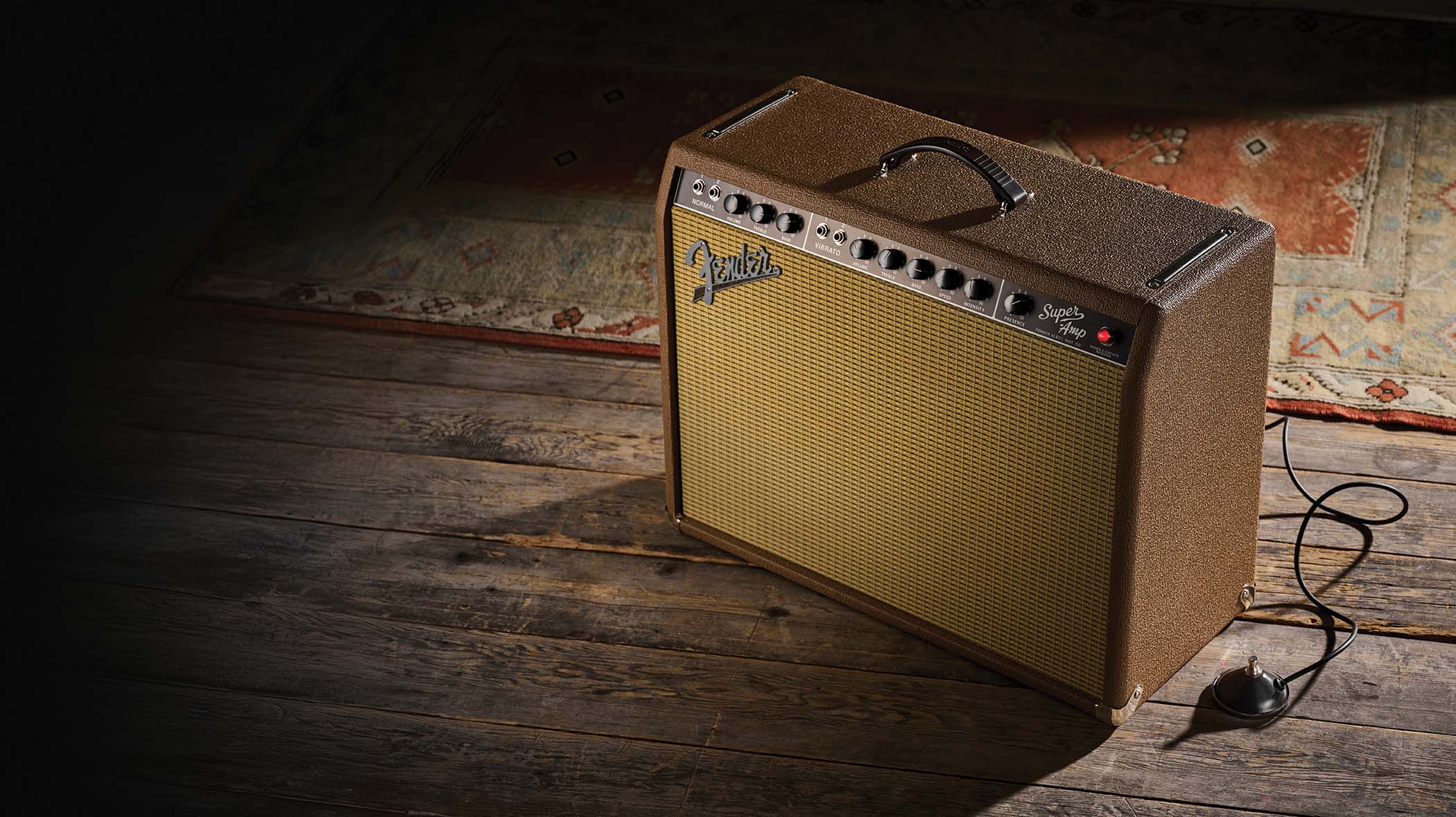We need to talk about boomer bends: why the backlash to Tim Henson's technique preference represents more than just a generational divide
The Polyphia guitarist’s comments about avoiding "boomer-ish" bends sparked a reaction that speaks to larger issues for us guitar players, and how our treatment of the past shapes the future of the instrument

Polyphia guitarist Tim Henson recently made the mistake of voicing a personal preference in a video on the internet. The throwaway comment on how he likes to avoid “boomer-ish” bends occupied roughly 10 seconds of a 40-minute roundtable entitled The Modern Guitar Discussion.
Given this context – or, frankly, any context – it was a perfectly reasonable statement to make. Not least because host Rick Beato had invited Henson on alongside fellow contemporary guitar titans Tosin Abasi and Misha Mansoor, to discuss exactly this sort of thing.
But, of course, half the internet interpreted Henson’s comment as nothing less than a threat to their very existence. It was as if Henson had stood on his chair and made a rallying call to eradicate not just 'boomer bends', but an entire generation and, indeed, capitalism, comfortable insoles and Star Wars.
For many players, myself included, the backlash was infuriating, particularly the underlying tone that Henson somehow didn’t know what he was talking about. As if a successful 27 year-old guitarist is not capable of deciding their own tastes and playing their own music. It implied that he should learn to just ‘do it the old way’.
In reality, Henson is the one who has the perspective. He never said he didn’t like the music. He just views the increasingly watered-down blues of the ‘boomer bend’ as one of many techniques, something evocative of a particular era.
Thankfully, many viewers took it in good humor, confessing their own addiction to 'boomer bends' or laughing at Henson’s throw-away skewering. As someone sandwiched between the two warring generations of Boomers and Gen Z, I have to say that when I heard the term I was glad.
Firstly – like Beato – it made me laugh, because in Henson’s concept of "boomer-ish" bends, he perfectly encapsulated and dismissed 60 years of lazy guitar tropes. My job is writing for guitar and music-making publications, and I have used many more words to say much less.
All the latest guitar news, interviews, lessons, reviews, deals and more, direct to your inbox!
Secondly, it prodded me to question my own playing – which frequently defaults into blues-rock clichés – and, thirdly, it convinced me that this conversation is long overdue.
The fact is that 'boomer bends' are overused. Yes, it’s all part of a broader cycle, but that side of guitar playing isn't getting any younger. Retro-fetishists can claim to update classic rock all they like, but with a few exceptions, it's mostly more of the same. The innovations are small, the returns of that cycle of self-consumption diminishing.
Henson, by contrast, is currently in the ascendance: an innovative guitarist who is inspiring new players. He is finding ways to keep the guitar relevant in a landscape of astonishingly broad listening habits and rich learning resources. He’s not the only one, either. More than ever before, younger players from more diverse backgrounds are seizing guitars at such a rate that guitar makers can’t keep up with the demand.
The past has become sacred and unquestionable. We have, collectively, rebuilt the entire industry around nostalgia
The criticism of Henson speaks to a much larger issue we have in the guitar-playing world, which is that the past has somehow become sacred and unquestionable. Musicians have always looked back to learn, but something bigger has happened across the past few decades. We have, collectively, rebuilt the entire industry around nostalgia.
You can see why this has happened. The guitar was the first truly democratizing force in popular music. Just as rock ’n’ roll radio found new ears across the country, the guitar arrived and rescued music-loving kids from the formality of parlor gatherings and family piano recitals.
Hand-in-hand, the electric guitar and rock music arrived to take teenagers out of the house and into the garage, venue and, eventually, a big, muddy field in the name of peace and love and progress. The artists that wielded those guitars had long-lasting impacts on society. People shaped their lives around those messages. But what was once the counter-culture has aged into the dominant culture. And now the instruments that built it are kept under glass.
What started as an occasional record reissue has turned into a rolling classic album tour circuit, going through the motions. In the guitar industry, the vintage obsession – still powered by that dream of the '60s blues rock icons – occupies more and more of our headspace, trade shows and collections.
Guitar land has developed an unquestioning belief that old ideas are good, new ideas are bad
As a community, we build and rebuild the same boxes, investing ever-increasing hours and dollars in pursuit of sounds that have already been made. Guitar land has, somehow, developed an unquestioning belief that old ideas are good, new ideas are bad.
It’s the same on the playing side. We play the same licks, on the same gear and we say things like, "I’m really more of a feel player…" with a straight face, as if any guitarist, anywhere, has ever played the instrument to not express themselves.
(As a side point, guitarists from all sides of the spectrum have said this to me over the years – including all those ‘stunt’ player ‘bogeymen’ that are imagined to be the enemies of this stance.)
In effect, the 'boomer bends' backlash is telling players like Henson to carry on letting guitar music consume itself. To say to a contingent of younger players – who can see all this happening and think, on balance, they don’t need to add to it – "You should do this, too."
The guitarist, more than any other musician, is prone to believing that we need a certain combination of expensive and magical trinkets to achieve our dreams, and that the playing of a certain era cannot be bettered; that a small group of predominantly white, predominantly male, predominantly heterosexual players solved the problems of mankind.

This is how history works: the rough path is beaten smooth by the footfall. Where this process gets harmful – in cultural matters and wider society – is when we stop questioning it. When we stop looking for a new way.
Henson is by no means the first player to decide he doesn’t want to play the same things his parents did, or even choose to avoid the 'boomer bend'. There’s a long line of superb guitar players who have already made that decision: Johnny Marr, The Edge, Robin Guthrie, Jonny Greenwood, the aforementioned Mansoor and Abasi.
It should also be said that 'boomer bends' sound great in the right hands, too. However, it’s just one idea of many. The guitar has thrived because of its flexibility. Successive generations have used it to take a buzzsaw to the rulebooks of their predecessors. But it’s getting harder to cut through – and we can do without the enforcement from online punishers.
The great failure of the those perpetuating the 'boomer bends' backlash is that they have missed the lessons of their own icons. Those who had a relentless desire to move forward, to a better place, to move on from painful pasts. A rolling stone gathers no moss. Don’t look back. Rip it up and start again. Stand up next to a mountain and chop it down with the edge of your hand.
For most of us, the watered-down 'boomer bend' is no longer a tool for revolution. It has become a crutch – one that’s led to a long and unquestioned proliferation of boring, predictable music: playing that says nothing about the player.
I enjoyed Henson’s off-hand take because I find the idea that we can tie-up 'boomer bends' and toss them in the fire to be liberating. I see it as a fresh start, a blank page on which legions of new players can start to make their own marks.
“I fully expect that one day people will be making the same jokes about my playing – slaying insults, generationally,” Henson told Beato, when they discussed the fallout. “I welcome it with open arms. We’ll keep doing it from generation to generation.”
For the guitar to survive, we must.

Matt is Deputy Editor for GuitarWorld.com. Before that he spent 10 years as a freelance music journalist, interviewing artists for the likes of Total Guitar, Guitarist, Guitar World, MusicRadar, NME.com, DJ Mag and Electronic Sound. In 2020, he launched CreativeMoney.co.uk, which aims to share the ideas that make creative lifestyles more sustainable. He plays guitar, but should not be allowed near your delay pedals.




